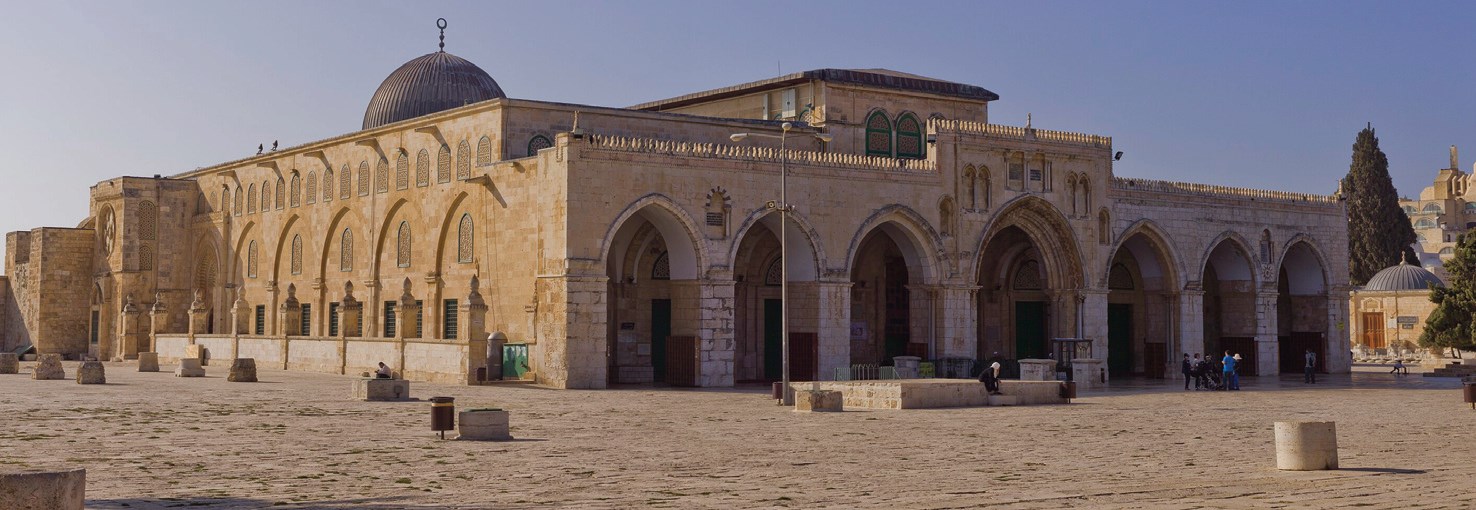AL-AQSA MOSQUE: While restrictions persist there, the Palm Beach County School Board has approved calendars allowing Muslim students and staff to observe the Eid-al-Fitr holiday marking the end of the holy fasting month without having to miss school. PHOTO COURTESY OF WIKIPEDIA.ORG
The Associated Press and wire reports JERUSALEM – Israel announced Tuesday its long-awaited plans for Muslim worshippers who want to pray at a flashpoint holy site during the upcoming holy fasting month of Ramadan, due to begin around Sunday, March 10.
The announcement came amid high tensions because of the nearly five months of fighting in the Gaza Strip between Israel and Hamas.
There had been concern that Israel would sharply curtail the number of worshippers allowed at the site. Prime Minister Benjamin Netanyahu said Israel would allow a similar number of Muslims to worship at the Al-Aqsa Mosque during the first week of Ramadan as it has in previous years.
The decision followed a government meeting with top security officials. Netanyahu said security forces would determine if any changes are needed. Far-right National Security Minister Itamar Ben Gvir slammed the decision, saying it was a danger to Israelis. Netanyahu’s office would not comment on whether Palestinians from the West Bank would be able to enter Jerusalem to pray at Al-Aqsa during Ramadan. Most of the checkpoints between Israel and the West Bank have been closed since the Hamas’ attack on Oct. 7 that sparked the war.
In previous years, Israel allowed women and young children from the West Bank to enter Jerusalem without a permit during Ramadan, as well as men between the ages of 45 and 55 who have a permit.
For Palestinian worshippers, praying at the third-holiest site in Islam is a centerpiece of Ramadan. Jews revere the site as the Temple Mount, home to the biblical Temple. The competing claims often spill over into violence.
Meanwhile, the U.N. and its partners are reporting a lack of food to distribute in Gaza, and say the dire conditions are forcing some 340 people to share a single toilet and roughly 1,300 to share one shower on average in overcrowded shelters.
U.N. spokesman Stephane Dujarric said Tuesday that the food entering Gaza "is very limited compared to the overwhelming needs," and that continuing airstrikes and heavy fighting are impeding humanitarian operations.
He said the U.N. humanitarian office re.
ports that between Feb. 26 and March 3 a daily average of some 245,000 people received food assistance including food parcels and hot meals from 17 of its partner organizations. He said 42% of the food went to Palestinians in southern Rafah and the rest to Deir Al Balah, Khan Younis, Gaza City and northern Gaza.
But the U.N. says the entire 2.3 million population of Gaza needs food, with starvation levels rising and children already dying of malnutrition.
The U.N. children’s agency UNICEF, which deals with water and sanitation in crises, reports that more than 80% of Gaza households lack clean drinking water, Dujarric said. UNICEF has been providing fuel to operate public and private water wells and desalination plants, the U.N. spokesman said.













No Comment